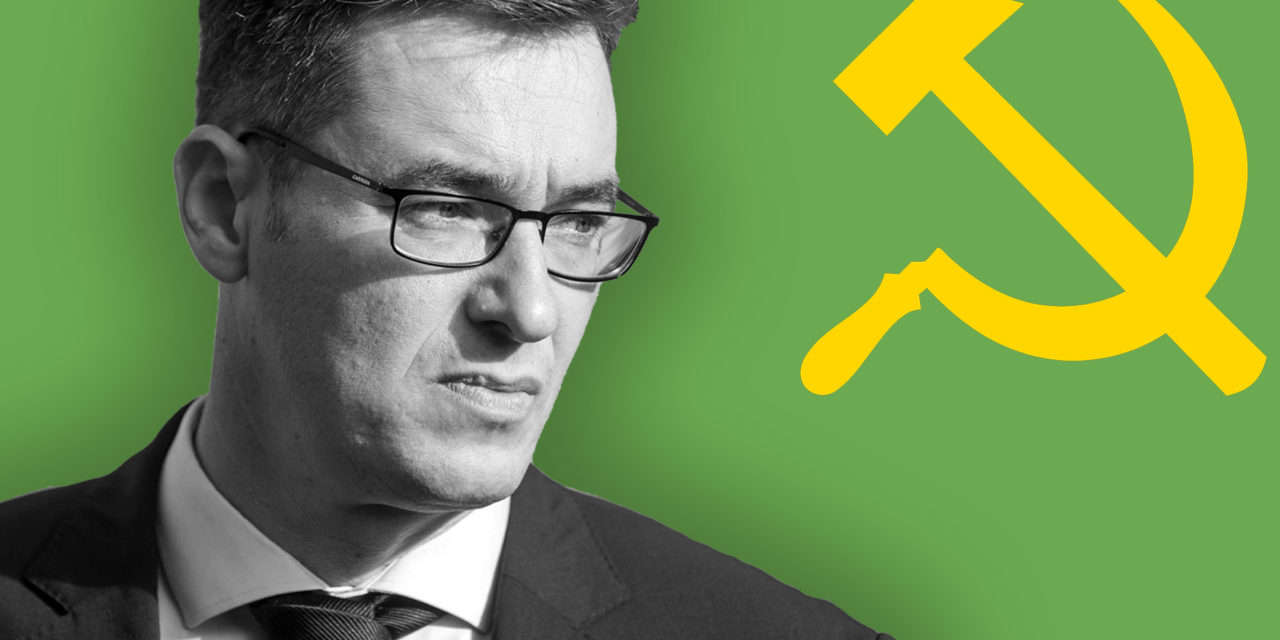According to the mayor, the left-wing idea he proclaimed does not have a social majority in Hungary today, thus justifying at least the most daring act of his career, the fall, which he managed to absolve even before the elections. Whether his enlightenment happened on his own or if he was helped is not yet public, in any case, according to his statement, he managed to mourn his five hundred million campaign in five minutes, and let's face it, this is no small feat. Not even from him, although if it's someone, everyone's Geri is the one whom the public can (was) able to love even for their small achievements.
How his fellow party members, financial supporters, and by now well-worn fan base feel about this is another question, but that should be their concern. We have nothing else to do but cast our watchful eyes on Budapest again and hope with optimism mixed with naivety that after the second year of his election and the magical somersault, the mayor will finally get to work. There is plenty to do.
The prevailing public conditions in the capital are worrisome, and this is perhaps the most noticeable change in the life of Budapest after the pro-order Tarlós, and it is also a crisis that affects not only those living in the capital, but also those passing through. Deteriorating public cleanliness and public safety demoralize even those who are used to the traffic chaos, are able to live with the climate emergency, see the unmown sea of gas as an English park, and even envision real bees for the beekeepers.
However, in the past two years, under the leadership of Gergely Karácsony , not only the capital, but also the left-wing districts have neglected the issue of public safety and public cleanliness .
The area around the shopping center and market near the Újbuda center was flooded with homeless people and beggars, and people sleeping there are regularly seen at the tram stops in Móricz Zsigmond tér. Even in the popular Bikas park, the people who live there are no longer happy to sit on the benches, the path of Bartók Béla út has been covered by homeless people, and on the green space at the BAH junction, you can often see people without a roof lying on the grass, who choose public parks instead of the services of day care institutions.
The situation is similar in the vicinity of Vérmező and Déli railway stations in District I, as well as near the Széll Kálmán tér traffic junction and the shopping center on Széna tér. But we cannot leave the desolation of the city on the other side of the Danube without a word. Örs vezér tere is one of the busiest traffic and commercial hubs in the capital and also in Zugló, where tens of thousands of people travel every day. The space is run down, littered and neglected. Illegal street vendors, homeless people and drug addicts set up shop in and around the underpass, but more recently, begging gangs have also appeared.
Clear as in the streets of San Francisco, but not in the former series, but in the everyday reality of the present. Of course, this is true for most large American cities that boast democratic colors, where the "something for nothing" principle was enforced by the benevolent city administration, but unexpectedly, the policy of "compassion" did not lead to the solution of the homeless problem, but to its escalation . Human nature is just like that, at least in reality, as opposed to mica dust ideologies, of course. But exactly which way of thinking brought one of the world's richest cities to the point where its streets reek of human excrement?
The municipality of San Francisco spends a billion dollars a year on the problem of homelessness, but it is not decreasing, it is increasing. More and more people are living on the streets, even forming tent camps, criminal gangs are active in the city, and drug trafficking is taking place openly on the streets. Drug possession was decriminalized. According to some interest groups, it is a human right to live on the streets - sounds familiar, right? –, as a result, more and more homeless people are arriving, also from outside the state, half of the 18,000 homeless people are not from San Francisco in the first place. 450 people come to the city every year, because it is much better to be homeless there than elsewhere. The city distributes 4.5 million syringes a year, of which only 60 percent can be collected, the rest is likely to be recycled by addicts. The social workers also distribute vitamin C and advise those affected on how to inject themselves. Syringe collectors were placed in public spaces, conveying the message that drug use is normal, easily accessible, and not punishable. So then the drug addicts arrive, but even those who had no intention of using drugs eat more easily from the "laid table".
Everyone in the city has a friend who is already homeless, but when these cases are brought up, they get the answer that they are "criminalizing the homeless". Social workers distribute food every day, six tons of garbage are generated in the tent camps, yet the homeless wait for food in front of cafes and other shops, and if they don't get it, they steal, for which there is also no punishment. However, the city takes good care of them, the sight of average American meals thrown away by them, half-eaten or unopened, is a daily occurrence on the street.
Several police officers and social workers confirm that the majority of homeless people refuse help - although they are of course happy to use street services. According to the protection of the interests of the homeless, they have the right to accept or reject any service, which the city must provide without demanding anything in return, because the homeless cannot do anything about being homeless or drug addicts. This is the attitude that is at the expense of public safety and public cleanliness, and this is one of the reasons why public sanitation officials receive eighty calls a day because the street stinks of human excrement.
The "something for nothing" principle therefore leads here, not to mention that, disguised in a humanitarian garb, it implements the most unjust distribution possible, thereby demoralizing and even destroying the healthy fabric of society. Because the money - benefits, services, housing - that you give for nothing, you take from someone. From someone who worked for him. And it doesn't differentiate between those who can't and those who don't want to work. But we can put it another way: on what legal basis, what ideology, what morality does any leadership decide that what it gives to one for free, the other has to pay for, and even charges the latter an extra amount to compensate for the deficit after the distribution of free money?
Christmas is also guided by this approach, the implementation of the "something for nothing" principle can be discovered in many program points. Such is his homeless program , his bulbous ideas about basic income, but also the demagoguery of old lies about ending child hunger with a lump sum. Because a continuous need obviously cannot be eliminated with a one-time sum, especially not if in most cases it is the parent who stands between the state and the needy child who installs the aid. Of course, in order to say this, it is not only necessary to discard the politically correct way of speaking, but also to recognize the reality. said in the Partizán interview with Péter Márki-Zay , the left-wing ideology he promoted does not have a social majority in Hungary today. He is good, and Hungarian society is bad, because it does not accept his beautiful, left-wing ideas.
I just don't know how Budapest will become a clean and safe world city again?













